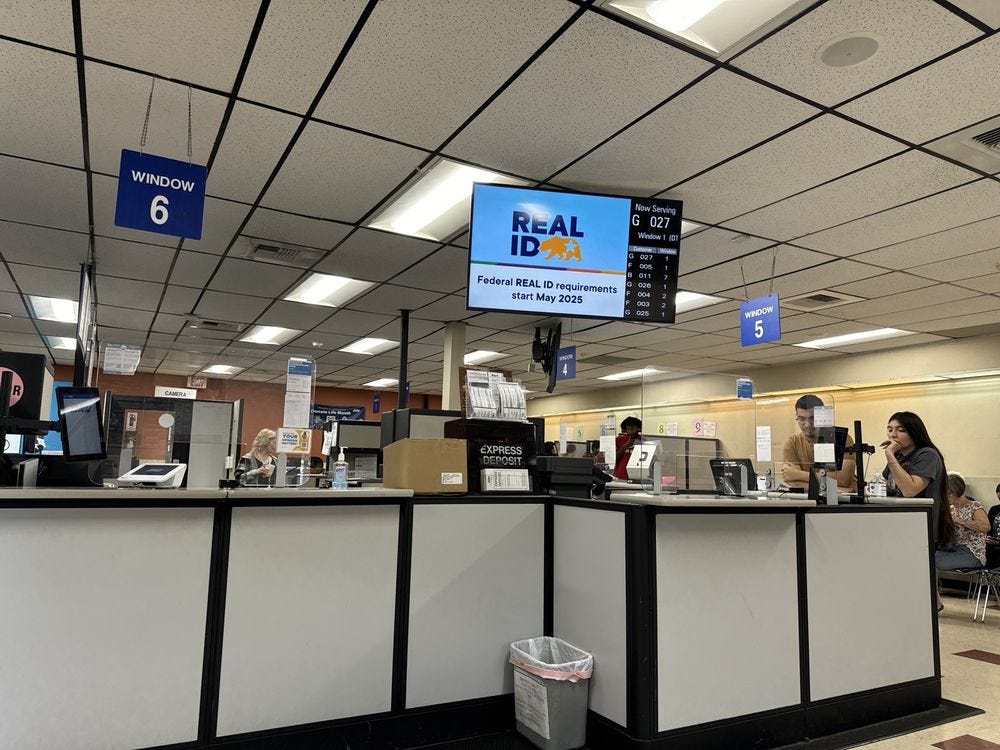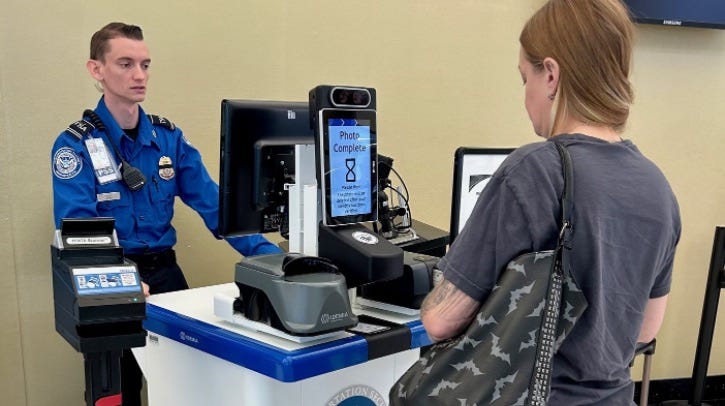- Get link
- X
- Other Apps
How to Get, Use & Secure Your State-Issued ID Card (2025 Edition)
Imagine standing at the threshold of your next big opportunity — boarding a plane, opening a bank account, registering for a new job, or accessing a government service — and being told, “You need your state-issued ID card.” That moment defines identity, access, and trust in modern society.
Your state-issued ID card isn’t just a small plastic card in your wallet — it’s a key to your rights, privileges, and security. It’s the document that agencies and businesses trust when verifying who you are. Whether you’re in New York or Nairobi, a resident or traveler, this guide will walk you through everything you need to know, from what a state-issued ID card is, to how to get one, how to use it, how to protect it — and how this simple credential anchors your Real ID Card in an increasingly digital and global world.
Identity Verification Services”
State ID & Driver’s License Consulting
REAL ID Compliance Checklist (2025 Update)
International Identity Documents & Verification
You’ll learn:
- What exactly a state-issued ID card means (and how it differs from a driver’s license or passport)
- Why it matters for access, verification, and mobility
- How to apply, renew, or replace one — with practical steps and global context
- How to use it intelligently in everyday life — from travel to finance
- How to future-proof your ID in the age of digital identity (including compliance issues like REAL ID Act)
By the end of this guide, you’ll feel confident, informed, and ready to act. Let’s demystify the National ID Card and give you the blueprint to use it like a pro.
What Is a State-Issued ID Card? (Definition & Core Purpose)

Definition & Core Purpose
A state-issued ID card (often called a “state identification card”, “non-driver ID card”, or simply “state ID”) is a government-issued form of official identification issued by a state or territorial authority that proves a person’s identity, age, residency, and often citizenship or legal presence. It is typically not a driver’s license (though many states issue both through the same department). Michigan.gov+3US Birth Certificates+3Rocket Lawyer+3
Unlike a driver’s license, a state-issued ID card does not automatically grant driving privileges; instead, it focuses purely on identity. According to one definition: “A State ID Card is a government issued form of identification containing personal and biometric information, that allows its holder to prove their identity and citizenship.” US Birth Certificates
Why It Matters — Identity, Access & Trust
This credential serves three critical functions:
- Proof of identity: Verifies your name, date of birth, photograph, and unique ID number.
- Proof of residence: Confirms where you live (required for many services).
- Proof of legal status: In many jurisdictions the ID verifies that you are legally present in that state (and sometimes U.S. citizenship or lawful residency). Michigan.gov+1
When you walk into a bank, apply for a job, travel domestically, or present yourself at a government agency, the state-issued ID card is often the primary document that establishes your legal identity. For example, in the U.S., one guideline states that “Driver’s licenses and state-issued Identification (ID) cards issued by U.S. states … are among the acceptable List B documents for Form I-9, Employment Eligibility Verification.” E-Verify
State-Issued ID vs Other Identity Documents
Document TypeIssuing AuthorityPrimary PurposeKey DifferencesState-Issued ID CardState DMV or similarIdentity verification onlyDoesn’t include driving privilegesDriver’s LicenseState DMVDriving + identityRequires driving test/licensing criteriaU.S. Passport / National IDFederal GovernmentInternational travel + IDUsed globally; higher cost and validityEnhanced / Digital ID FormsState / GovernmentSecure travel + accessAdditional verification, cross-border uses
In the United States, there is no national identity card for everyday use; instead, identity documents are primarily issued at the state level. Wikipedia Thus, for many U.S. residents, the state-issued ID card is the de facto identity credential when they do not drive.
Who Needs a State-Issued ID Card? (Eligibility & Use Cases)

Key Eligibility Considerations
While each state has unique rules, common eligibility criteria for a state-issued ID card include:
- Residency in the issuing state (you must live in the state). Welcome to Oklahoma’s Official Web Site+1
- Proof of identity (birth certificate, passport, or equivalent). Rocket Lawyer+1
- Proof of legal presence (citizen, permanent resident, lawful temporary resident). U.S. Immigration and Customs Enforcement+1
- Proof of state residency (two documents showing address). Michigan.gov+1
- Social Security number or proof of ineligibility for one. Michigan.gov
- Application fee and photo submission. Welcome to Oklahoma’s Official Web Site
Non-driver identification cards allow those who don’t — or prefer not to — drive to still have an official photo ID with full identity verification. For example: “For those individuals that cannot or do not want to drive, states offer an I.D. card that has the same security and identification features as a license but does not extend to driving privileges.” Rocket Lawyer
Common Use Cases & Why They Matter
- Non-driver adults and minors: A state ID card offers photo identification to people who don’t hold a driver’s license (teenagers, seniors, people with disabilities).
- Verification for services: Opening bank accounts, registering for utilities, renting property, verifying age for age-restricted products (alcohol, tobacco) — all require state ID.
- Employment and I-9 verification: As noted, the state-issued ID is accepted under federal employment eligibility verification (U.S.). E-Verify
- Domestic travel and security checks: Although not always sufficient for federal requirements (see REAL ID below), the state ID is still a primary form of ID for many domestic purposes. USAGov
- Access to services and benefits: Government or private programs often rely on your state-issued ID to validate eligibility, residency and identity.
Global Relevance & Variation
Outside the U.S., many countries use national identity cards issued by central government (e.g., European identity cards, Bangladesh NID ) — but in the U.S., the model is state-level. Wikipedia+1
For businesses and services operating globally, understanding that “state-issued ID card” means something different in each jurisdiction is key — but the core concept (identity + verification + document) remains universal.
How to Apply & Obtain a State-Issued ID Card (Step-by-Step)

Application Process (Typical in U.S. States)
While each state has its own exact process, here are the universal steps most jurisdictions follow:
- Gather required documents
- Proof of identity (birth certificate, passport, legal name change document). Michigan.gov+1
- Proof of lawful presence (if required) — immigration status, resident card, etc. U.S. Immigration and Customs Enforcement
- Proof of state residency (usually two documents showing your address). Welcome to Oklahoma’s Official Web Site+1
- Social Security number (or proof of ineligibility). Michigan.gov
- Complete the application form at your state Department of Motor Vehicles (DMV), licensing office, or equivalent. Welcome to Oklahoma’s Official Web Site+1
- Pay the application fee and possibly select optional enhancements (REAL ID, digital ID, etc.). Welcome to Oklahoma’s Official Web Site
- Have your photo taken, fingerprints (in some states), and submit your documents for verification.
- Receive temporary ID where applicable — then your permanent card will arrive by mail. For example, Oklahoma indicates after approval you receive a temporary paper ID until the card arrives. Welcome to Oklahoma’s Official Web Site
- Ownership and validity: Once issued, your state ID card typically needs renewal every 4–10 years depending on state rules. Michigan.gov+1
REAL ID & Enhanced ID Options
If you want an extra layer of security or travel-friendly credential, you may choose:
- REAL ID: In the U.S., a state-issued ID card that meets the federal Real ID Act standards and is marked with a star (“★”) in the upper right. Without it, you may face restrictions when boarding domestic flights or entering federal facilities. USAGov+1
- Enhanced Driver’s License or Enhanced ID: Some states issue credentials that can be used for land/sea cross-border travel into Canada, Mexico or the Caribbean in lieu of a passport.
Tips & Best Practices
- Always use original or certified documents; photocopies usually aren’t accepted. Michigan.gov
- Double-check your full legal name, date of birth and spelling — errors cost time and money.
- If you changed your name (marriage, divorce, legal change), bring the court order or marriage certificate.
- Make sure you have enough blank space and follow photo requirements (head size, background color) as specified by your DMV.
- If you are a new resident in a state, you may need to apply within a set time-frame (e.g., 30–60 days).
- Keep track of your expiration date and set a reminder to renew ahead of time.
Using Your State-Issued ID Card: Everyday Uses & Global Perspective

Everyday Domestic Use Cases
A state-issued ID card is a trusted credential across countless contexts:
- Airports & Transportation: For domestic flights (if compliant) or as alternate ID.
- Age Verification: Buying alcohol, tobacco, or accessing adult-only venues.
- Banking & Financial Services: Opening accounts, securing loans, verifying your identity with banks or fintechs.
- Government Services: Applying for welfare benefits, social services, voting registration (in some states), driver’s license substitution.
- Rental & Employment: Landlords, employers, and gig platforms often require it.
- Everyday Verification: Getting a library card, registering for school, securing prepaid mobile accounts.
Travel and Security Considerations
- A state-issued ID card is not always sufficient for all travel; for example in the U.S., after May 7, 2025, you’ll need a REAL ID-compliant credential (or passport) for domestic flights. Brides+1
- Outside the U.S., many countries either issue national ID cards or require passports for identification; so for international travel, plan accordingly.
- Some states now offer digital ID versions (mobile apps) — check if your state participates. mycolorado.state.co.us
Global Context: Identity Documents Around the World
For a global audience, note that the concept of a “state-issued ID card” varies:
- In Europe and many other regions, national identity cards are mandatory and issued by central governments for all citizens. Wikipedia+1
- In the U.S., the decentralized system means state IDs serve a similar role domestically, but don’t replace passports for international travel. Wikipedia
- For global services (banks, online platforms) accepting a U.S. state-issued ID may differ — verify cross-border acceptability and compliance.
Renewal, Replacement & Security Risks

Renewal & Replacement Process
- Renewal: Most states allow renewal in person, online, or by mail, often ahead of expiration. Michigan, for example, lets residents renew up to 6 months ahead and up to 4 years after expiration. Michigan.gov
- Replacement: If your ID is lost, stolen or damaged, you typically need to visit the issuing agency, present proof of identity, pay a replacement fee, and receive a new card.
- Updating Information: Changing name, address, or gender marker typically requires legal documentation and sometimes a visit to the DMV. Michigan.gov
Security Risks & How to Mitigate
Your state-issued ID card is a prime target for identity theft and fraud. Here are best practices:
- Do not laminate your ID (many states prohibit this).
- Report the loss or theft immediately to the issuing agency and request a block or replacement.
- Keep your ID in a safe place and avoid carrying unnecessary credentials.
- Use strong passwords and two-factor authentication if your state provides a digital ID version.
- Monitor for suspicious activity (accounts opened in your name, etc.).
Compliance & Standards — The REAL ID Example
The REAL ID Act (2005) established minimum federal standards for state-issued driver’s licenses and ID cards for federal use (air travel, federal facilities). Department of Homeland Security+1
- States must verify identity, Social Security number, lawful status, and provide enhanced document security.
- After May 7, 2025, for states not compliant or not holding REAL ID credentials, a passport (or other acceptable ID) will be required for domestic flights. Brides
Staying informed about your state’s compliance status and whether your ID is REAL ID-ready is crucial — especially if you travel or access federal facilities.
Common Questions & Advanced Topics (FAQ Section)
Q1: What is a state-issued ID card and how is it used?
A: A state-issued ID card is a government-issued identification credential that proves your name, photo, date of birth, address and legal presence in a U.S. state. It’s used for identity verification across banks, government services, travel, employment and more. US Birth Certificates+1
Q2: Can I apply for a state-issued ID card if I don’t drive?
A: Yes. Most states offer a non-driver ID card option through their DMV or licensing agency — identical in identification value to a driver’s license, but without driving privileges. Rocket Lawyer
Q3: What documents do I need to apply for a state-issued ID card?
A: Documents typically required include proof of identity (birth certificate/passport), proof of state residency (two bills or statements), Social Security number or proof of ineligibility, payment of fees, and in some cases proof of lawful presence. Michigan.gov+1
Q4: Is my state-issued ID enough for domestic flights?
A: Only if your ID is compliant with the REAL ID standards or you carry an acceptable alternative (passport, enhanced ID). After the enforcement date, non-compliant IDs may lead to restrictions. USAGov+1
Q5: Can I use my state-issued ID card outside the U.S.?
A: Generally not as a travel document. While it serves for domestic purposes, for international travel you’ll typically need a passport or an internationally accepted ID. Some enhanced ID cards may allow land/sea entry into neighbouring countries, but check specifics.
Q6: What happens if I change my name or address?
A: You’ll need to submit legal documents reflecting the change (marriage certificate, court order, utility bill) and visit or apply online with the issuing agency to update your ID. Michigan.gov
Q7: How often must I renew my state-issued ID card?
A: Renewal cycles vary by state — typically every 4–10 years. Many states allow online renewal if you meet certain criteria and have no changes in personal information. Michigan.gov
Q8: What should I do if my state ID is lost or stolen?
A: Immediately report it to the issuing agency, request a replacement, monitor your credit/identity for misuse, and consider placing identity theft alerts if necessary.
Q9: Are digital state-issued ID cards valid and secure?
A: Some states now offer mobile/digital versions of their state ID cards (e-ID), which can increase convenience. Verify that your state’s digital ID is accepted by agencies and businesses and ensure you follow security guidelines. mycolorado.state.co.us
Q10: How does my state ID differ from a national ID in other countries?
A: In countries with national identity systems (e.g., many European states), a centralized government issues IDs for all citizens. In the U.S., identity documents are decentralized and state-issued IDs fill the role domestically, while passports serve globally. Wikipedia+1
Future Trends: Digital IDs, Cross-Border Recognition & What to Watch

Digital & Mobile State ID Cards
States are increasingly offering digital state ID cards — smartphone-based credentials that replicate the security features of physical cards. These apps may allow you to present your ID via QR code, NFC or secure chip. For example, Colorado’s “Digital ID™” is an electronic version of your driver’s license or state ID card. mycolorado.state.co.us
Advantages include convenience, reduced physical theft risk, and faster remote verification. However, adoption depends on acceptance by airlines, banks, employers, and federal agencies.
Cross-Border & Global Identity Recognition
As travel, immigration, freelancing, and remote services become more global, expect these trends:
- Enhanced IDs or REAL IDs that allow land/sea border crossings (U.S. states doing this for Canada/Mexico)
- International recognition of certain state IDs for identity verification in global services (fintech, remote onboarding)
- More states issuing biometric state IDs with chip-embedded data to align with international standards
Security, Privacy & Verification Technologies
- Evolution of tamper-resistant materials (polycarbonate cards, laser-engraved security elements) — some states redesigning IDs for increased fraud protection.
- Increased use of digital identity wallets, multi-factor authentication, and blockchain-based verification.
- Ongoing regulatory focus: privacy protections, data breach consequences, and verification standards (like REAL ID compliance).
What You Should Monitor
- Check your state’s official site for updates on REAL ID enforcement deadlines and digital ID availability.
- Stay alert to changes in document requirements (residency proofs, Social Security verification).
- Make sure your ID is accepted by banks, airlines or services you use — especially if switching states or traveling.
- Keep backups: electronic scan of your ID (securely stored), and ensure your personal information is up-to-date.
Why This Matters to You — and Why it Matters to Our Business

For Individuals & Residents
Your state-issued ID card gives you:
- Access — to employment, housing, banking, travel, and public services.
- Security — a verified identity reduces risk of denial, delays or fraud.
- Mobility — with a valid ID you navigate life with confidence, domestically and increasingly internationally.
- Digital readiness — as IDs evolve, staying current means smoother transitions into digital identity ecosystems.
For Businesses & Service Providers
From a business or agency perspective:
- Understanding the credentials your customers present ensures compliance, fraud prevention, and efficient verification.
- Offering services that accept state-issued IDs (including digital forms) expands your market and reduces friction.
- Educating customers about ID preparation builds trust and reduces support bottlenecks (fewer failed applications, fewer lost IDs, better retention).
For Our Agency (NY-Based) & Why We Do This
As a New York-based identity verification and consulting agency, we help clients — globally — navigate complex identity ecosystems. Whether you’re a U.S. resident needing a state-issued ID, a global citizen seeking U.S. verification, or a business needing verification solutions — this guide is the foundation. We stand by the belief that empowered identity equals empowered opportunity.
Conclusion & Call-to-Action
Your state-issued ID card is more than a piece of plastic — it’s a legal passport to access, identity, and mobility in today’s world. Whether you’re applying, renewing, using it for banking, travel, or business — being informed and proactive makes all the difference.
At Elite Tech Tools, we specialize in identity verification, assistance with state and federal ID processes, and advising businesses on secure identity acceptance. Get ahead of the curve: schedule a free consultation today and let us help you obtain, optimize and protect your state-issued ID — so you move with confidence, globally and locally.
👉 Contact us now to get started.
- Get link
- X
- Other Apps
Comments
Post a Comment